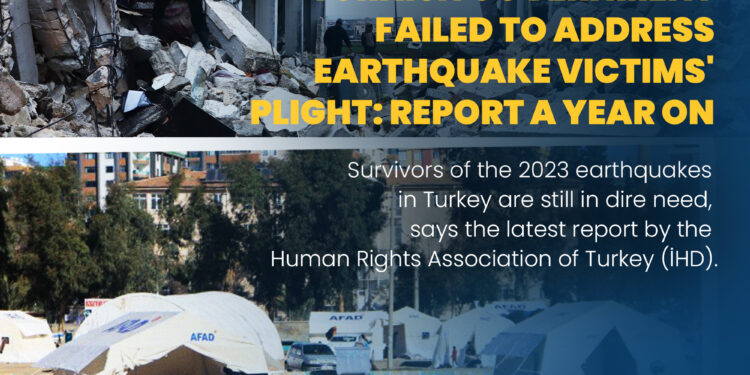Ongoing challenges faced by earthquake victims in Turkey over the last year have not been addressed, according to the latest report by the Istanbul branch of the country’s Human Rights Association (İHD) on the first anniversary of the devastating tremors.
Two massive earthquakes measuring 7.8 and 7.7 on the Richter scale struck southeastern Turkey and areas of northern Syria on 6 February 2023, killing 53,537 people in Turkey, and up to 8,500 in Syria.
İHD’s report, focused on Turkey, was presented at a press conference in Istanbul on Monday under the banner, “Not a disaster but a massacre, we will not forget 6 February”, highlighting the failure of the Turkish government to meet the needs of earthquake survivors.
Unmet emergency provision of basic services such as shelter, food and health care have left communities to fend for themselves, the İHD said.
Aid distribution has been politicised, with aid confiscated in Kurdish-majority provinces by government-appointed local leadership (‘trustees’), and the Turkish Red Crescent, the largest humanitarian foundation in Turkey, exposed as prioritising profit over provision.
The report highlighted unsafe conditions in temporary shelters, particularly for women, children and LGBTI+ people. The housing, education and health sectors still face severe challenges, while the electorate in earthquake-hit zones have been threatened with conditional support by officials from the ruling party dependent on the outcome of the 31 March local polls.
The report also pointed to issues related to child protection, a key concern being the placement of unaccompanied children in religiously affiliated institutions.










